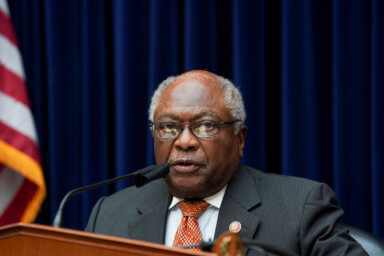From Jim Crow-era poem to Black Anthem: A national hymn

“Lift every voice and sing…”
James Weldon Johnson
Flag, constitution or country?
Allegiance seems blurred after Americans witnessed the vivid Capitol Building siege on Jan. 6, 2021 leaving some confused, frustrated while admitting they had for long imagined all three as symbols of a united nation and most significantly, emblematic to loyalty.
Since the first hump day of the year, trepidation abounds with debates among loyalists to the credo that for 244 years advanced the assumed inherent principles of the United States of America.
Conversations focused on flag-waving, white, Republicans who brandished the Confederate, the Star Spangled banner and the Trump flag in an effort to reclaim the Republic they believe had been “stolen.”
Professed patriots their commitment manifested with near-revolution.
That one flag represents southern states that seceded during the Civil war from 1861 to 1865, the other, named for the anthem which was composed by Francis Scott Key and now the approved standard bearer.
And the third, designed in homage to a former television reality show host who won the electoral votes despite losing the popular votes in 2016.
Perhaps these variances in perception motivated a reasoning by South Carolina Cong. James Clyburn to this week propose a resolution designating the Black anthem as the official national hymn.
According to Wikipedia since 1931 the Star Spangled Banner has always symbolized “respect for the country and the soldiers who defend our rights.”
To many it is affirmation of devotion of the American ideals.
The lyrics to the first verse:
“Oh say, can you see, by the dawn’s early light,
What so proudly we hailed at the twilight’s last gleaming,
Whose broad stripes and bright stars, through the perilous fight,
O’er the ramparts we watched, were so gallantly streaming?
And the rockets’ red glare, the bombs bursting in air,
Gave proof thru the night that our flag was still there.
Oh say, does that star-spangled banner yet wave
O’er the land of the free and the home of the brave…”
Sources also record that “America has been at war 225 years out of 244 and only at peace for less than 20 years total since its birth…”
Criticisms have long been made with the anthem’s references to slavery and perceived glorification of war.
But that’s another story.
For those reasons, progressive Blacks adopted the Johnson brothers’ poetry “Lift Ev’ry Voice and Sing…
“Lift Every Voice And Sing, till earth and Heaven ring,
Ring with the harmonies of liberty;
Let our rejoicing rise, high as the listening skies,
Let it resound loud as the rolling sea.
Sing a song full of the faith that the dark past has taught us,
Sing a song full of the hope that the present has brought us;
Facing the rising sun of our new day begun,
Let us march on till victory is won.
The words seem to uplift, inspire and provide pride to a population who seem to identify with the intent James Weldon Johnson and his brother John Rosamond Johnson composed more than 100 years ago.
Penned initially as a poem more than a decade before the national anthem of the USA was designated the official song, the musical adulation was composed when Jim Crow laws replaced slavery in the south.
“To make it a national hymn, I think, would be an act of bringing the country together. It would say to people, ‘You aren’t singing a separate national anthem, you are singing the country’s national hymn,’” the Democrat said.
Like many of his colleagues who scrambled for safety as white supremacists roamed the Capitol Building in Washington D.C. in search of captives, Cong. Clyburn observed the Star Spangled Banner used as a prop and symbol of hatred.
He believes he can provide a unifying salve that might aid in repairing the global blemish.
“That to me, would be a unifying effort on our part.”
The joyous song might be rebuffed by a short-sighted, narrow-minded, militant segment of the Republican Party membership. Some traditionalist Democrats will likely share their view.
Recitation from Blacks are not easily revered.
Clyburn is optimistic — “I would hope to get bipartisan support for that.”
The southerner said.
In fact, his proposal would not replace the Francis Scott Key composition of 1814 — but would enhance the anthem.
The legislator hopes the Black anthem will help to heal the wounded nation.
Wikipedia reports, “The first public performance of the song was on Feb. 12, 1900, in Jacksonville, Florida, according to the NAACP. It was sung by 500 children at the Stanton School where James Weldon Johnson was principal. It became the official song of the NAACP in 1919 — more than a decade before ‘The Star-Spangled Banner’ was adopted as the national anthem of the U.S.”
Catch You On The Inside!
The post From Jim Crow-era poem to Black Anthem: A national hymn appeared first on Caribbean Life News.





